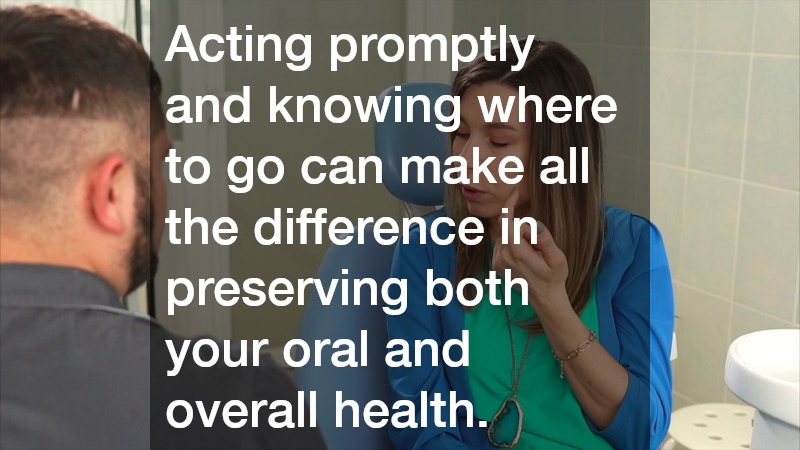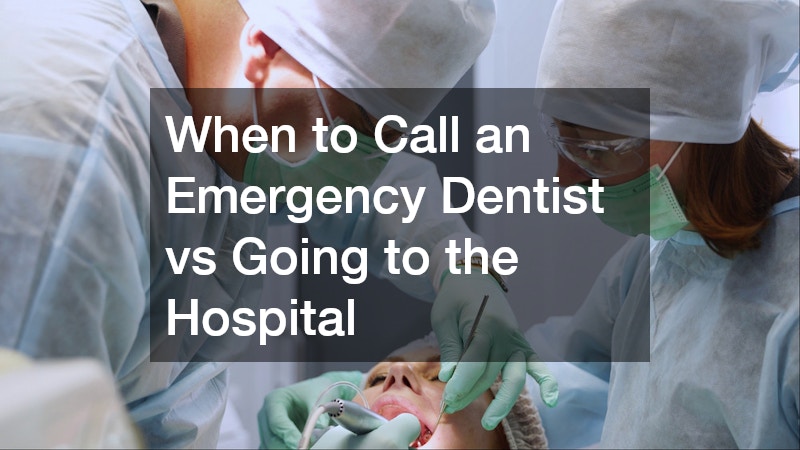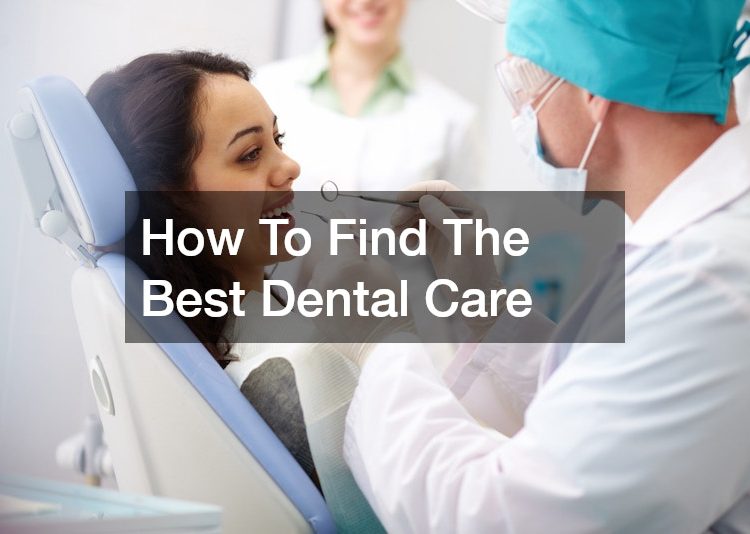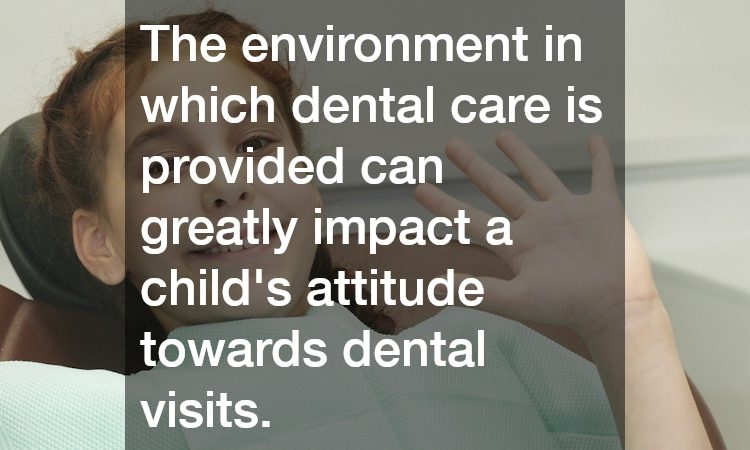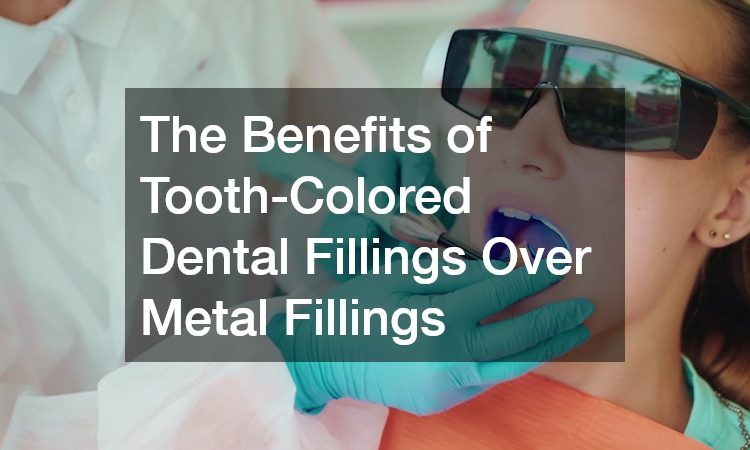Knowing when to contact an emergency dentist instead of going to the hospital can make all the difference in preserving your oral health and preventing further complications. Dental emergencies can happen suddenly — from severe pain to trauma or infection — and understanding where to go for help ensures you receive the right care quickly. This guide outlines how to recognize true dental emergencies, when to call your dentist, and when a hospital visit is necessary.
What Constitutes a Dental Emergency?
A dental emergency involves sudden pain, damage, or infection that requires immediate attention. While not all dental problems are life-threatening, delaying treatment can lead to more serious issues such as tooth loss or infection spread.
The key is to evaluate the severity, pain level, and time sensitivity of your symptoms before deciding where to seek help.
The Role of Pain and Discomfort
Pain is often the first sign of a dental issue requiring urgent care. Persistent or sharp toothaches usually indicate infection or nerve damage and shouldn’t be ignored. If pain worsens with pressure, temperature changes, or swelling, call your dentist immediately.
Immediate vs. Delayed Treatment Needs
Some problems, like mild tooth sensitivity or small chips, can wait for a regular appointment. However, conditions involving severe pain, bleeding, or swelling demand same-day attention from an emergency professional.
When Should You Visit an Emergency Dentist?
An emergency dentist is trained to handle urgent oral health issues that require prompt yet non-hospital-based care. If the problem is confined to your teeth, gums, or mouth and isn’t life-threatening, a dental clinic is the best place to go.
Severe Toothache and Pain
Sudden or intense tooth pain could signal decay, nerve exposure, or infection. An emergency dentist can diagnose the cause and provide immediate relief through medication or treatment.
Broken or Chipped Teeth
A cracked or chipped tooth can expose nerves and lead to sensitivity or infection. Quick repair with bonding, crowns, or veneers helps restore function and prevent further damage.
Lost Fillings or Crowns
When a filling or crown falls out, the exposed tooth can become painful or vulnerable to infection. Your dentist can replace or reattach the restoration to protect the tooth structure.
Bleeding and Swollen Gums
Persistent gum bleeding or swelling may point to gum disease or trauma. An emergency dentist can assess the issue and provide deep cleaning or medication to reduce inflammation.
Dental Abscesses and Infections
A dental abscess — a pocket of pus caused by infection — requires immediate care. Symptoms include swelling, fever, and severe pain. Left untreated, infections can spread to other areas of the body, so same-day treatment is crucial.
When Is a Trip to the Hospital Necessary?
While most dental emergencies are best treated by a dentist, certain conditions require emergency medical care. If your dental issue involves facial trauma, severe swelling, or breathing difficulties, go to the nearest hospital.
Traumatic Dental Injuries
Accidents that cause jaw fractures, severe facial cuts, or extensive tooth damage often require a hospital visit. Once stabilized, follow up with your dentist for further dental reconstruction.
Facial Swelling or Infection Signs
Severe swelling that spreads to the neck or face could indicate a spreading infection that threatens your airway. This requires immediate medical attention, as it can become life-threatening.
Uncontrollable Bleeding
Bleeding that doesn’t stop after 10–15 minutes of pressure needs emergency medical evaluation. Hospitals can provide stronger interventions to control bleeding and prevent complications.
Respiratory Obstructions Related to Dental Issues
If swelling, infection, or trauma makes breathing or swallowing difficult, call emergency services or head to the ER immediately. These symptoms can signal airway obstruction.
Severe Allergic Reactions
In rare cases, allergic reactions to dental medications or anesthesia can cause breathing problems, dizziness, or hives. These require prompt medical care at a hospital.
Preventive Measures to Avoid Dental Emergencies
While not all dental emergencies can be prevented, taking proactive steps reduces your risk of unexpected pain or injury. Regular visits to your emergency dentist or general dentist help identify issues early before they worsen.
Regular Dental Check-Ups
Routine check-ups allow dentists to catch cavities, cracks, or gum disease before they become emergencies.
Maintaining Proper Oral Hygiene
Daily brushing, flossing, and using mouthwash prevent decay and gum infections that can lead to urgent situations.
Diet and Lifestyle Factors
Avoid chewing hard foods like ice or popcorn kernels, and limit sugary snacks to protect your enamel and gums.
Protective Gear in Sports and Activities
Wearing mouthguards during contact sports or physical activities helps prevent broken or knocked-out teeth.
Recognizing Signs Early
Learn to recognize early warning signs such as sensitivity, swelling, or bleeding. Prompt attention can often prevent a minor issue from becoming an emergency.
Act Fast, Choose Wisely, Protect Your Smile
Understanding when to visit an emergency dentist versus going to the hospital ensures you get the right care at the right time. For dental pain, chipped teeth, or infections, a dentist can provide specialized treatment quickly. However, life-threatening conditions involving severe swelling, bleeding, or breathing problems require hospital care. Acting promptly and knowing where to go can make all the difference in preserving both your oral and overall health.
